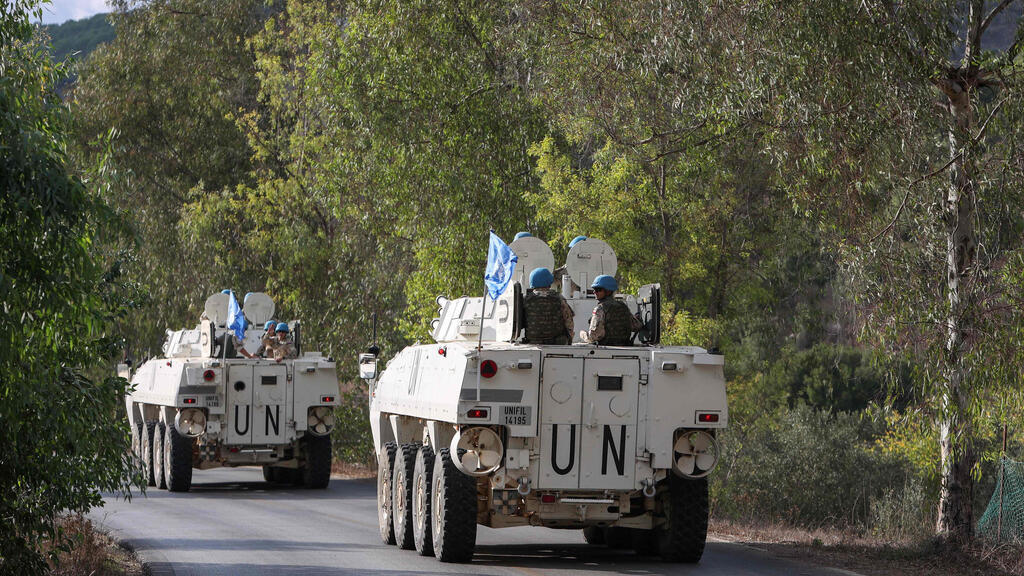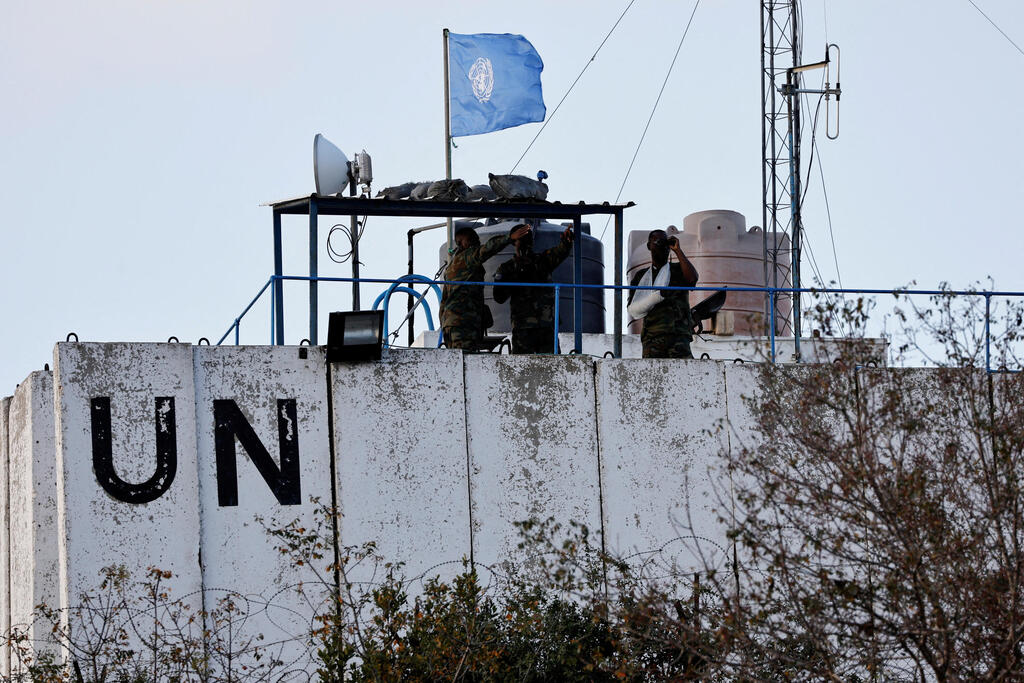UN peacekeeping missions often succeed only in maintaining peace when there is no active conflict to address in the first place. For instance, since May 1974, UNDOF has effectively managed the ceasefire between Israel and Syria, while the UN Truce Supervision Organization has overseen the truce between Israel and the Jordanian Arab Legion since May 1948.
These operations contrast sharply with the UN Emergency Force, which was stationed in Sinai and Gaza after Operation Kadesh in 1957 and was swiftly expelled by Egyptian President Nasser in May 1967 at the onset of the Six-Day War.
2 View gallery


UNIFIL peacekeepers on Patrol in South Lebanon before the war
(Photo: Menahem Kahana / AFP)
UNIFIL's effectiveness has fluctuated, showing characteristics of both successful and failed peacekeeping missions. Between its inception after Operation Litani in March 1978 and the IDF's withdrawal from the security zone in May 2000, UNIFIL somewhat succeeded in maintaining peace. Its mandate was to prevent armed forces from establishing in southern Lebanon, a task previously managed by Israeli forces. However, once Israel handed over control of southern Lebanon, UNIFIL failed to prevent Hezbollah's takeover of the vacated territory.
UNIFIL's shortcomings became evident in July 2006 when Hezbollah ambushed IDF patrols, killing three soldiers and kidnapping two, sparking the Second Lebanon War. The conflict ended with UN Security Council Resolution 1701, which tasked UNIFIL with creating a demilitarized zone between Israel and the Litani River. Yet again, UNIFIL failed, allowing Hezbollah to amass forces and rockets along the border.
Netanyahu in an appeal to the UN Secretary General: Evacuate the UNIFIL soldiers immediately
(Video: Omer Miron, GPO)
Unlike UNDOF and the UN Truce Supervision Organization, Israel's relations with UNIFIL have never been particularly strong. Even between 1978 and 2000, UNIFIL soldiers often fired upon Israeli forces near their positions. UNIFIL's history is marked by numerous incidents with countries contributing troops, such as Fiji, Norway, Ireland, Germany, and the USA. Israel has frequently viewed UNIFIL as problematic, even hostile, rather than a neutral entity.
UNIFIL's ineffectiveness is underscored by ongoing Hezbollah attacks on Israeli communities since October 7. Not only has UNIFIL failed to curb this aggression, but it also acts as a human shield for Hezbollah, whose militants deliberately hide behind UNIFIL positions, provoking fire that inadvertently harms peacekeepers. International condemnations of Israel resulting from these incidents only benefit Hezbollah.
 Michael Oren
Michael OrenGiven the assumption that the responsibility for maintaining a demilitarized zone will eventually be transferred to the Lebanese army, UNIFIL's presence in the region is unnecessary, making the Prime Minister's call for UNIFIL's removal justified and necessary.
Historically, the claim that the UN needs considerable time to withdraw such forces doesn't hold. In 1967, when Nasser decided there was no peace to maintain, the UN Emergency Force was dismantled and evacuated within a week. A similar demand for UNIFIL's evacuation from southern Lebanon within a comparable timeframe would not be unreasonable.
- Michael Oren is a former Israeli Ambassador to the United States and an internationally-renowned author.
Get the Ynetnews app on your smartphone:





